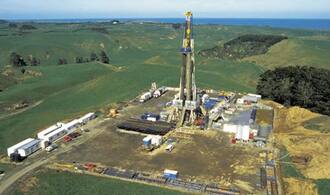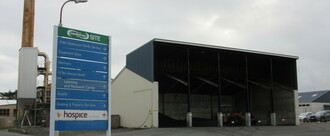-
Trees for free!This campaign urges the government to prioritise a greener future by revising current policies and redirecting funds towards sustainable initiatives that benefit everyone. By securing dedicated funding for tree planting and passing legislation to support eco-friendly infrastructure, New Zealand can significantly reduce its carbon emissions and stay true to its carbon-zero commitments under the 2016 Paris Agreement. Instead of investing in projects that offer little long-term value—such as controversial road expansions or excessive spending on defence upgrades—resources could be better allocated towards initiatives that protect the environment and our communities for future generations. To offset household electricity for a year, we would each need to plant approximately five trees. With this information, it would be best to plant more than 10, 000 trees as a basis number. By planting a sufficient number of trees in New Zealand, we can offset our carbon footprint. This change can create an enormously positive impact on New Zealand's ecosystem. By supporting this cause, we can offset our carbon footprint and work towards achieving net-zero emissions. This approach will allow us to maintain our thriving agricultural sector while contributing to environmental sustainability. The growth of flora in our ecosystem encourages native species to thrive in better conditions. We need to begin a program that allows normal citizens of New Zealand to find a tree to plant locally. This needs to be free of cost, and easily accessible for citizens around the country. By letting people receive trees to plant, free of cost, we can obtain our billion trees program goal by 2028. This is a great way to grow trees voluntarily, trees for free. Yina Zheng, Daniel Dickson, Hyungwoo Kim, the Trees for Free campaign team145 of 200 SignaturesCreated by Yina Zheng
-
Open Letter: Resist the Fast Track!At the centre of the Luxon Government’s War on Nature is the Fast Track Bill. This damaging new legislation shortcuts environmental protections and sidelines both Te Tiriti and democracy. It could see the forests and oceans of Aotearoa reduced to open-cast mines, rivers and lakes turned to sewers, and precious wildlife condemned to extinction. Australian miner Trans Tasman Resources has already said it will use the Fast Track to gain access to the South Taranaki Bight where they plan to rip up 50 million tonnes of the seabed every year for over 30 years. Opposition to the Fast Track has already been widespread and some industry leaders are already saying they won’t use the Fast Track as a result. We need more to follow their lead. Sign on to this open letter to industry now to help push more of them to opt out of the Fast Track.216 of 300 SignaturesCreated by Greenpeace Aotearoa

-
Support community energy for a just transitionWe can’t keep powering our lives with polluting fuels from last century that keep damaging our climate, our neighbourhoods, and our health. The fossil fuel industry is greedily lining its pockets and five major power companies in New Zealand profit from burning coal. Meanwhile, our communities suffer from stronger floods, droughts, polluted air, blackouts and soaring energy bills (in the last 30 years households power prices rose by 79%). Vulnerable communities are at the forefront of these devastating impacts. Community energy is critical for a just and equitable transition to renewable electricity and tackling energy hardship. This is why we are asking our Government to make a commitment and release a strategy that will help Aotearoa achieve 750MW community energy generation and 400MW community storage by 2035. We need to draw a line in the sand and speak up against our broken energy system and put an end to energy injustice. We can push our politicians to invest in affordable clean energy and introduce policies that will strengthen energy sovereignty. Will you join our fight for climate justice and start advocating for solutions? We have the technology available to power our lives without killing our planet and harming our communities. Getting to 100% renewable energy electricity is 100% doable. We can have homegrown and locally-produced energy and stop being reliant on the fossil fuel industry. Renewable energy projects create more investment across the economy. More community-controlled renewable energy will give people greater access to and ownership over their local energy systems and strengthen community ties. https://www.youtube.com/watch?v=qZ_eT9LY4VM428 of 500 SignaturesCreated by adam currie
-
A bid for the future - no more oil and gas drilling in TaranakiWe are deeply disappointed that the government has once again opened over 20% of the Taranaki region for future oil and gas drilling through a Petroleum Block Offer process. The ‘Block Offer 2020’ is a tender for permission to explore for petroleum - this means the government is offering blocks of land in Taranaki to oil companies looking to drill for oil and gas. Block Offer 2020 is open now and closes at 5pm on 26 July 2023. We’re saying: NO WAY! We all know we need urgent radical change now to prevent climate chaos. It’s a practical and moral imperative to do all we can to defend our planet and our future. The climate emergency demands we transition away from fossil fuels towards clean sustainable energy sources. Yet greedy fossil fuel companies are taking the opportunity to look for more oil and gas in Taranaki. The Government must stop handing out oil and gas permits. Handing out permits for more fossil fuel exploration while the planet is heating at unprecedented rates can only be described as ecocide. Handing out permits to oil companies now is like handing out death certificates to our children. Fossil fuel companies have known of their impacts on climate and ocean chemistry for decades, and have acted to increase their biosphere-destroying activities, instead of transitioning to a degrowth economy. We are seeing and feeling the impacts of climate change with our very own eyes. The storms this summer that have brought so much devastation to Aotearoa need to be our wake-up call. Carbon dioxide levels in the atmosphere keep rising due to increasing emissions from human activity - the use of fossil fuel being one of the main causes. Despite politicians saying that climate change is a priority successive governments have failed. It’s now up to us to rise up together for climate justice. Join our bid to take climate change seriously – for our tamariki and Papatūānuku. Join our bid to stop drilling for more oil and gas in Taranaki now! Find out more Climate Justice Taranaki: http://climatejusticetaranaki.info/ Block Offer 2020, New Zealand Petroleum and Minerals (NZPAM) https://www.nzpam.govt.nz/permits/petroleum/block-offer/block-offer-2020/3,156 of 4,000 SignaturesCreated by Climate Justice Taranaki
-
Investigate rationing fossil fuel use with Tradable Energy QuotasTo ensure a safe, stable climate, we need a dramatic reduction of fossil fuel use and reductions in carbon emissions. In the face of the climate emergency, our methods must also restore biodiversity and ensure the health of land, air, and water in Aotearoa. Yet 2022 apparently saw record emissions from the use of oil, gas, and coal (final figures yet to be published). 🔥 The Emissions Trading Scheme (ETS) is the cornerstone of New Zealand’s climate mitigation plan. Yet, for political reasons, price-based schemes such as the ETS and carbon taxes simply can’t reliably deliver the explicit reductions now required. Prices high enough to change behaviour could risk excluding many from essential energy needs. Prices too low will be a waste of time. Only by tackling inputs rather than emissions will we achieve the required outcome with certainty. In our view, the fairest and simplest way to turn this around is to ration the use of fossil fuels through a method called Tradable Energy Quotas (TEQs). TEQs are a rationing system to ensure a reduction in fossil fuel use and greenhouse gas emissions. 🌏 TEQs would set a weekly energy ration granted equally to everyone driving age and over. Total quotas would be collectively capped to meet our climate goals and will decline each year, ensuring a reduction in emissions. TEQs would be deducted when purchasing petrol, diesel, coal and fossil fuel-generated electricity. It is equitable and involves everyone in the solution. People with money will still be able to pollute more by purchasing more quotas. But because TEQs will be decreasingly available over time, they will not be able to do this for long. Government and businesses will be able to buy quotas, the price being set at a weekly tender. The scheme will incentivise everyone to find creative solutions to lower emissions. The national TEQ price would be determined by national demand. Because of this, it will be in everyone’s interest to reduce our energy demand and to work together, encouraging our sense of common purpose. TEQs do not reduce emissions by increasing price - that is what ETS and Carbon Taxes do. TEQs control emissions directly by controlling the quantity of fossil fuels in the economy. It also makes measuring emissions easier - this can be easily calculated from the emissions equivalent of the annual TEQ amount. TEQs offer us a sensible and practical way forward to a thriving future. Do we have the courage and compassion to grasp it? ✍🏼 Sign and share our call to investigate the TEQ scheme! This petition is also hosted on the Parliamentary website. TEQs are a neat solution proposed by the late David Fleming, a British economist. Find out more at https://www.degrowth.nz/ TEQ References https://www.degrowth.nz/blog/teq TEQs at a glance https://www.flemingpolicycentre.org.uk/teqs/83 of 100 SignaturesCreated by Deirdre Kent
-
Diesel-free Auckland 2025🌏 We need to accelerate our transition away from dirty fossil fuel vehicles to avert climate collapse and clean up the air our tamariki breathe. Low emission zones are now common in many European cities as a way to ensure cleaner air for people living in cities. The low emission zones tax fossil fuel vehicles and are automatically enforced by cameras that can read number plates. We often think of New Zealand as being clean and green. Yet car pollution causes the death of thousands of people in New Zealand every year! Children, pregnant women, people with lung disease and other vulnerable groups are especially affected by air pollution from cars and trucks. Recent research in New Zealand has shown pollution from fossil fuel cars is more dangerous than all other forms of air pollution. Older diesel vehicles especially cause more air pollution than petrol vehicles. 🌏 The Auckland car pool is extremely diesel reliant (23% of the New Zealand vehicle fleet), so we really need to de-incentivise the purchase and use of diesel vehicles in urban areas where people live and work. While there have been some steps to reduce harmful emissions, the number of diesel vehicles on the roads continues to rise. 🌏 If the low emission zone was phased in it could target older diesel models first, to get the worst polluting vehicles off the road first. If done right the policy will have the effect of moving more people into public transport, electric vehicles, and active transport. There can be complementary policies to encourage non-polluting vehicle use. 💚 Discouraging diesel vehicles from Auckland will help keep children healthy, prevent diseases such as asthma, and as a result improve their learning, school performance and quality of life. Given what us older generations have done to the planet and the future of our tamariki, we owe them this! 💚 🚙 Many people presently depend on diesel powered vehicles for access and mobility. As part of a just transition we support and encourage measures such as universal design, to ensure disabled, and people of all communities are not left behind. 🚗 ⇨ Air pollution from cars killing thousands of NZers yearly, RNZ ⇨ Reducing harmful vehicle emissions from road transport, Ministry of Transport ⇨ London saw a surprising benefit to fining high-polluting cars: More active kids, Grist ⇨ Low emissions zones, Denmark17 of 100 SignaturesCreated by Frederik Federspiel
-
Stop the government giving millions more free carbon credits to polluters!This year we have experienced climate chaos firsthand with three devastating climate related storms in three weeks. The Emissions Trading Scheme (ETS) is New Zealand’s biggest tool to reduce climate pollution. But a new law going through Parliament aiming to update the Emissions Trading Scheme (ETS) could in fact allow even more pollution. A new clause adds in a mechanism to “reevaluate” which companies qualify for free carbon credits (Industrial allocations ) which could drastically increase the number of companies which get a free pass to pollute. It could also give some companies an increased number of free credits! What’s more, this whole scheme of free credits was originally meant to be phased out by 2030 but now this bill is proposing to enlarge the scheme and hand out even more free passes to pollute! For example, what could this Bill mean for a company like Fonterra? Fonterra’s lactose and whey manufacturing currently gets free credits to cover 57% of its emissions. Under this Bill, this could potentially increase to 87% free, and those extra free credits would be worth around $2M per year! But that’s not all. Fonterra’s other manufacturing operations like milk drying don’t currently qualify at all, but might under the changes in this Bill. Those operations emit over 1 MILLION tonnes a year, so if they did qualify, the extra free credits could be worth tens of millions of dollars annually… 🔥🌏 This is absolutely unacceptable in a climate crisis. 🌏🔥 Please sign our petition to • stop the Bill’s backward steps giving even more companies free credits and increasing the amount given to some companies • change the Bill to ban any new companies from getting free passes to pollute and to phase the free credit scheme out faster for existing companies. • Support the parts of the bill which do cut back insanely high free emission credits some companies have received. Thanks, Emily & Tim (Climate Club & Coal Action Network Aotearoa)3,453 of 4,000 SignaturesCreated by Emily & Tim (Climate Club & CANA)
-
Say no to The Willow Project!!Our planet cannot afford any more major drilling projects due to already out-of-control climate change. Especially due to rising water levels, New Zealand will be subject to drastic effects. This includes more natural disasters, effects on farming industries, and housing. We need to urge US President Joe Biden to decline the Antarctic oil drilling project alongside our international supporters. The ‘Willow Master Development Plan’ is a proposed oil project in Alaska. The 30 year project would extract huge reservoirs of petroleum stored on the Alaskan North Slope. It is said doing so could produce up to 180,000 barrels of oil a day, which is around 1.5 per cent of the total U.S. oil production. Five drilling sites have been proposed by the project builders, ConocoPhillips Alaska. The USA has enough oil to date to meet their country’s need, and extracting more oil for political and business reasons is a selfish and unnecessary step for humanity in the 21st century. The Willow Project could have a devastating impact on the western Arctic, jeopardising indigenous communities, polluting the water supply and air quality, and disrupting animal migration flows through the region. Not to mention the drastic effect it will have on the global supply chain and ecosystem. If this project is approved, many animals including polar bears, seals, arctic birds will be affected. The eco-system is already finely balanced. Climate change could become irreversible. More animals will become endangered and we may not be able to rectify what was done, for at least decades to come. It’s vital we take action - to verbalise our concerns on this matter now will show the huge global concern. The Biden administration has the ability to deny the permits to stop this climate disaster before it starts. We have international and USA supporters who are against this project. It’s time to do our part in saving the planet if we stand up and vocalise our concerns NOW. The Government here has already banned new offshore oil and gas exploration. As we take action in Aotearoa, we have an international role to also support climate action and climate justice everywhere. Every country needs to urgently transition off fossil fuels and ramp up investment in sustainable technologies. It’s so important we care for our planet as we depend on the health of the Earth for our own health. When we all come together as one to support the land and environment that has brought our communities closer, so we can support the next generations for a better future. We urge you to share our concerns so we can have a fighting chance to assist and nurture our planet as she nurtures us. Let’s protect the future for centuries to come! Stop the Willow Project - sign the petition! Find out more: https://apnews.com/article/biden-oil-alaska-willow-conocophillips-d834b0d258e357e976e85f4d59dab19a https://www.washingtonpost.com/climate-environment/2023/03/01/willow-project-biden-conoco-phillips/8,567 of 9,000 SignaturesCreated by Tanya Dewan
-
Phase out the import and sale of cars that run on petrol and diesel.Urgent action is needed as we face a climate emergency that threatens all life on Earth. Globally, the continued global rise in sales of SUVs pushed their climate-heating emissions to almost 1bn tonnes of carbon dioxide in 2022, according to the International Energy Agency. Here in Aotearoa, transport is responsible for 37 per cent of greenhouse gas emissions and is the second biggest climate polluter after agriculture. In 2023 the gas-guzzling Ford Ranger and Toyota Hilux were the top-selling vehicles. Big SUVs are dangerous for other people on the road, particularly children, people on bikes and pedestrians, they impact people's health with more harmful pollution and they drive the climate crisis. Transport emissions have to come down, but instead of relying on fuel price increases which are unworkable and unfair for lower-income families already suffering the cost of living crisis, the Government should take action to remove the worst vehicles from our roads.280 of 300 SignaturesCreated by Nick Young
-
WOMAD: Drop the oil sponsors!We love WOMAD as an international festival that celebrates diversity, and brings artists together from all over the world. At the same time as we come together to celebrate we remember we’re in a climate crisis fueled by the profits of companies extracting as much oil and gas as possible. We know that the oil industry has knowingly created the climate crisis. This is why it’s staggering to see WOMAD take money from the oil and gas industry. Climate change is an injustice that disproportionately affects our neighbours in the Pacific, indigenous people, and people in the majority world. These are the people who are also the least responsible for causing it. We understand it costs a lot to put on a great event like Womad. But the costs we’re all paying from the actions of climate criminals such as the oil corporations are not sustainable. As the global climate crisis intensifies each year with more fires, floods and droughts, we can’t help OMV continue to search for more fossil fuels to burn. Just 100 companies are responsible for more than 70% of the world’s carbon emissions. OMV is one of those companies. Companies like Todd and OMV are greenwashing their dirty business by sponsoring family-friendly music festivals like WOMAD. Todd Corporation companies and Austrian oil giant OMV were New Zealand’s number 6 and number 8 biggest climate polluters respectively in 2021. On the other hand WOMAD is in a unique position to use its platform to take a stand and protect the values it promotes. If WOMAD ended its fossil fuel sponsorship of future festivals, it could have a big impact. History has shown that when people, businesses, and brands publicly distance themselves from those who are causing harm, they can spark action in many others. For the love of art, music, and everything we hold dear, let’s tell WOMAD that the time has come to take a stand. https://www.womad.co.nz/info/sponsors/ https://www.stuff.co.nz/environment/climate-news/130991637/new-zealands-biggest-climate-polluters-ranked https://www.stuff.co.nz/taranaki-daily-news/slider/6547567/On-line-strike-at-festival-backers https://www.rnz.co.nz/news/national/464595/company-allowed-to-search-for-oil-and-gas-off-taranaki-coast-despite-ban2,041 of 3,000 SignaturesCreated by Climate Justice Taranaki
-
Use wood chip not lignite coal to heat Te Whatu Ora Southern hospital!Health is the largest carbon emitter in public sector- with pollution affecting people’s health. Greenhouse gas emissions in Te Whatu Ora Southern are high compared with other major Te Whatu Ora regions. Actually Nitrogen dioxide emissions were three times that of other Te Whatu Ora regions. Wood chips would reduce current health impacts of burning lignite ( coal), particularly in South Invercargill. Trials with wood chips at Te Whatu Ora Southern 2 years ago show these are able to be burned in the present boiler. There are plentiful local sources of woodchip to fuel the hospital burners. A lot of this is currently burnt inefficiently in farm windrows, causing further air pollution. This could be repurposed for the hospital. People in South Invercargill took up the Environment Southland free loan scheme to change from coal fires to clean energy options that have improved air quality. We are calling on Te Whatu Ora Southern to do the same and change to wood chips with urgency! Petition organised by Jenny Campbell & Coal Action Murihiku - please contact Jenny by clicking her name at the top of the petition to discuss. For more info on the issue: https://www.newsroom.co.nz/coal-switch-a-slow-burner-for-hospitals200 of 300 SignaturesCreated by Jenny Campbell
-
Update the Advertising Standards Code for a Carbon Zero 2050The popularity of light utility vehicles and SUVs continues to be on the rise, driven by advertising. Why is this an issue? Well, such vehicles are heavier, often have diesel engines and are less fuel-efficient, therefore meaning that increased sales of them compared to lighter vehicles is linked directly to greater emissions of carbon dioxide, nitrogen oxides and other pollutants across the globe. Climate change and declining air quality are crises we must address urgently. To prevent them from further threatening public health, we should be encouraging behaviours that ensure a safe future for our descendents on this planet. At the least we should be encouraging the uptake of fuel-efficient or zero-emission forms of transport, rather than the opposite. There are a multitude of similarly profitable, alternative products (take electric utes for example) that manufacturers can produce instead that would help meet Aotearoa’s goal of reducing net emissions of all greenhouse gases (except biogenic methane) to zero by 2050, so therefore there is no valid reason for harmful goods to be promoted positively through advertising. To hold vehicle producers socially responsible and thereby pursue a healthier future for the planet and all people, we are asking for just one small regulation to be added to the Advertising Standards Code. Notes: This petition ask is based on a recommendation made in both a UK study by Boyle et al. (2021) and a study by Woodward, Wisniewski and Wild presented to the Transportation 2021 Conference. 8 of the top 10 best-selling new vehicles in Aotearoa are light trucks (utes and SUVs). https://www.greaterauckland.org.nz/2021/06/02/the-rise-of-the-urban-light-truck-what-to-do-about-it/ Photo credit: https://www.greaterauckland.org.nz/2021/06/02/the-rise-of-the-urban-light-truck-what-to-do-about-it/263 of 300 SignaturesCreated by Cassie Wood

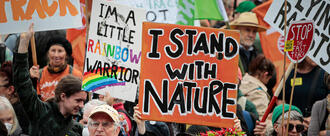
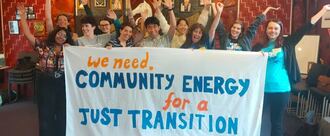
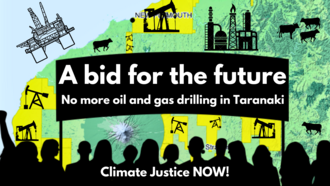

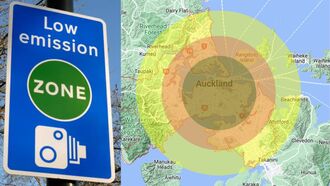
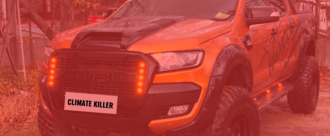.png)
